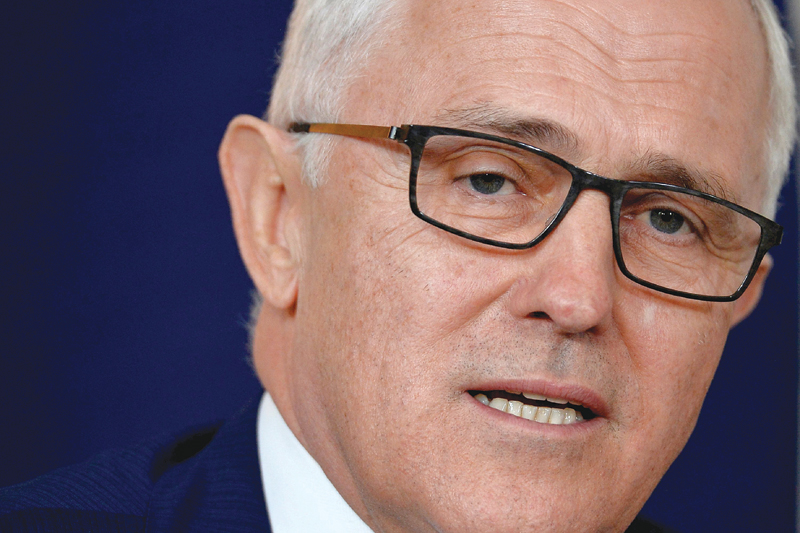

Sydney: The Australian government on Friday proposed a new cyber-security law that would compel Internet and social media companies, such as Facebook and Google, to help security agencies access encrypted messages from suspected criminals and extremists.
Prime Minister Malcolm Turnbull’s government introduced the draft laws, which will be sent to the parliament in November.
The legislation would give intelligence agencies stronger powers to remotely conduct surveillance of mobile phones and allow courts to order tech companies to quickly unlock communications.
The law is to be modelled on Britain’s Investigatory Powers Act, which was passed by British Parliament in November and gave intelligence agencies some of the most extensive surveillance powers in the world.
Turnbull said encryption was one of the big challenges the government faces, including communications that can be intercepted but not read or interpreted without “considerable difficulty.”
The government was seeking to enable the law enforcement agencies “not through back doors or any sort of untoward means, but legitimately, appropriately, with the force of law... to have access to these communications so that they can keep us safe,” he said.
“We need to ensure that the Internet is not used as a dark place for bad people to hide their criminal activities from the law,” Turnbull told reporters in Sydney. “The Australian Federal Police must have the powers — as do all our other intelligence and law enforcement agencies — to enforce the law online as well as offline.”
Turnbull also said Internet companies would have the same obligations that telephone companies do to help law enforcement access communications, for which the police would need warrants or court orders.
Attorney-General George Brandis said the encrypted messaging system is “potentially the greatest degradation of intelligence and law enforcement capability that we have seen in our lifetimes.”
He also said the government’s “very strong first preference is to work collaboratively with the companies so that there is a voluntary approach to this.”
Earlier, Brandis said the government proposal would “impose upon the companies an obligation,” and if the companies say it’s not reasonable, “they can argue that point in court.”
Encrypted communication grew from 3 per cent to more than 55 per cent of monitored communications in just a few years, according to the Australian Federal Police, while two-thirds of organised crime investigations, including terrorism and paedophile rings, involved some kind of encryption.
Human rights and Internet freedom activists lambasted the proposal, saying it will only end trust in the Internet and leave communications vulnerable to hackers.
Forcing tech companies to weaken encryption will not make people safer, said Elaine Pearson, Human Rights Watch’s Australia director.
“Turnbull might say he’s not talking about ‘back doors’ but there’s no way to access end-to-end encryption without deliberately weakening the encrypted apps that exist right now,” she said.
“Building in these weaknesses will make these programs vulnerable to hacking or abuse by governments,” she said.
Encrypted apps are not just for criminals, “they are a lifeline for activists and journalists in many countries to do their work safely and without government interference,” Pearson said.
She said the government should accept it won’t know what everybody is doing all of the time, and encryption is the only way to safeguard communications in an era of cyber crime and unauthorised surveillance.
Independent security analyst Troy Hunt said there were dangers for all users in undermining encryption systems.
“As soon as you start to build in weaknesses into the design of encryption, you put it at risk for everyone,” he told local broadcaster ABC.
Facebook said it had responded to requests for police help but that it could not read individual encrypted messages. “Weakening encrypted systems for them (law enforcement) would mean weakening it for everyone,” a Facebook statement said on Friday. — dpa
Oman Observer is now on the WhatsApp channel. Click here



